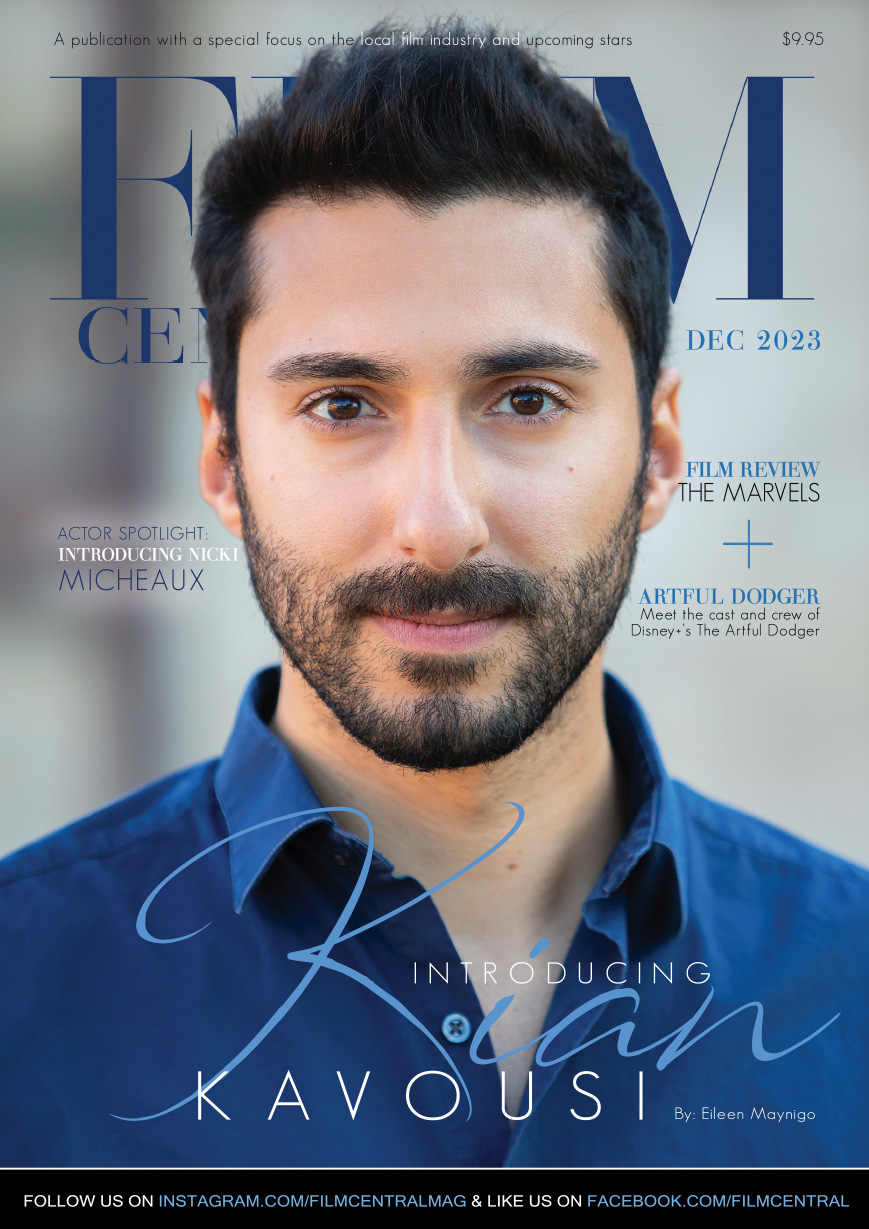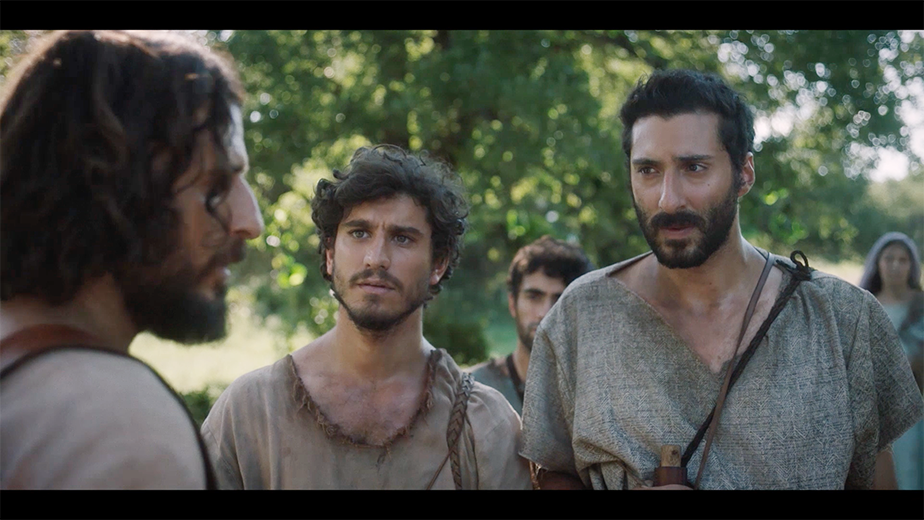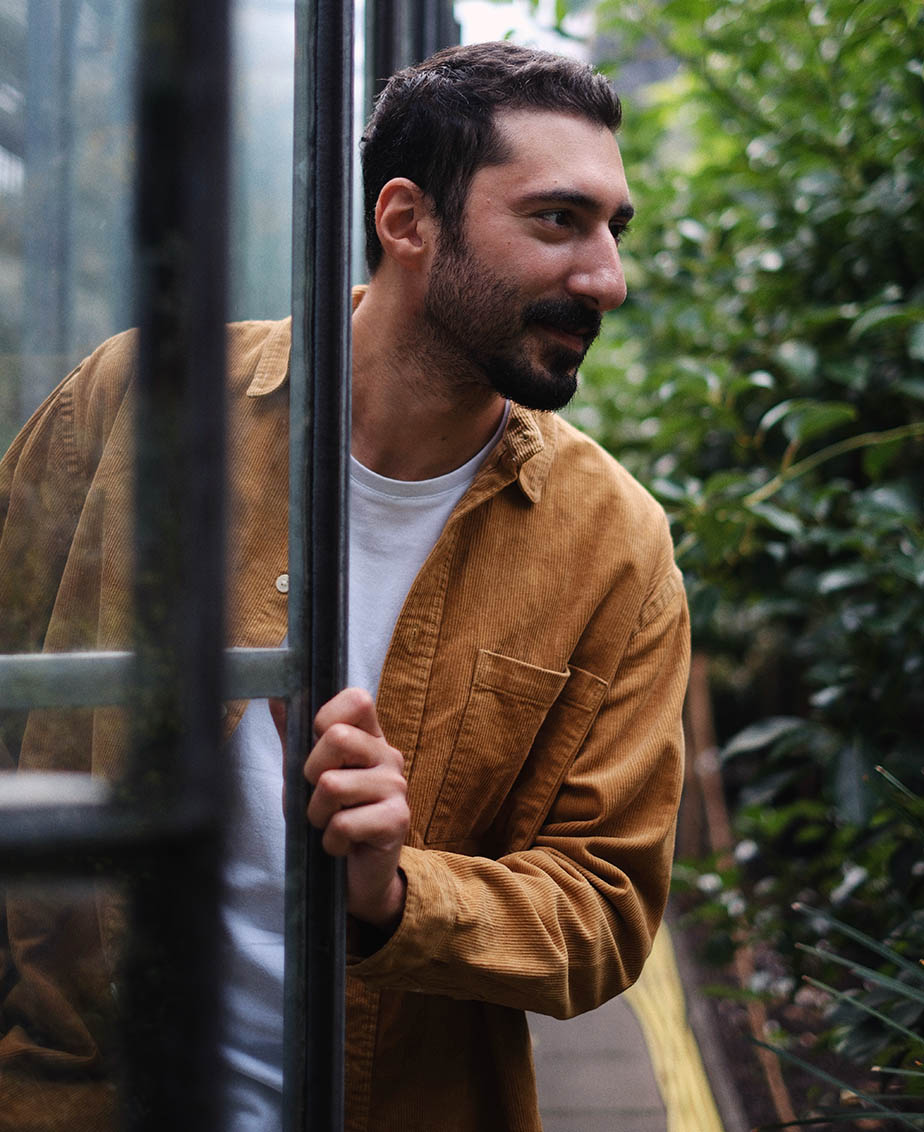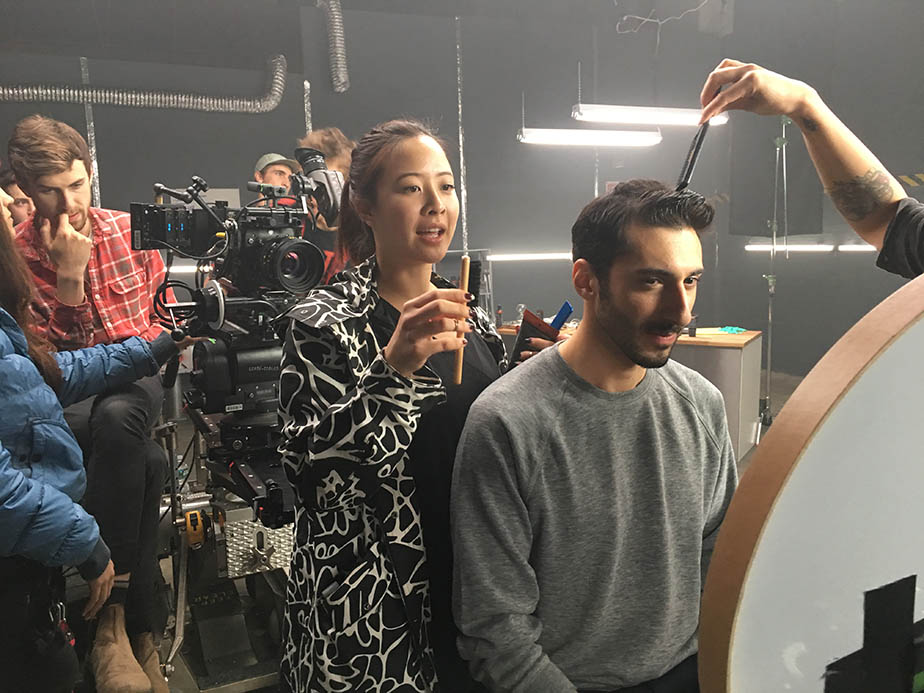
In the realm of the entertainment industry, Kian Kavousi emerges as a luminary, showcasing profound skill and versatility that has etched an illustrious path. His enduring impact on the small screen, silver screen, and theatre stages has left an indelible mark, garnering recognition and acclaim.
Foremost among Kavousi’s achievements is his standout portrayal in the renowned TV series “The Chosen,” a global hit distributed by Lionsgate and accessible on platforms such as Netflix, Amazon Prime Video, NBC’s Peacock, and the CW Network. Critics and viewers alike have lauded his compelling performance in this celebrated series.
Venturing beyond television, Kian Kavousi has graced feature films, earning acclaim at prestigious film festivals globally. Notable projects, including “1st Born,” “The Big Apple,” “Sarah Is Not Her Name,” “Miles,” and “The Last Chance,” showcase his diverse range and talent, infusing depth and authenticity into every character.
Kian Kavousi’s journey in the acting realm was shaped by dedicated training and mentorship from industry luminaries such as Larry Moss, Kristof Konrad, Jean-Louis Rodrigue, and Vincent D’Onofrio. This guidance refined his craft, endowing him with wisdom and technique that paved the way for success.
Beyond the screen, Kavousi’s artistry has graced Off-Broadway stages in productions like “The Defendant Maurice Chevalier” and “Professionals.” His captivating stage presence and unwavering commitment to characters showcase his adaptability and depth as an actor.
With an impressive body of work and an unwavering commitment to continual growth, Kian Kavousi’s future in the entertainment industry appears promising and vibrant. His dedication to his craft, coupled with powerful performances, solidifies his position as a distinguished actor both on screen and on stage.
A recent conversation with FilmCentral magazine delved into Kian’s industry journey, providing insights into his artistry and the path that lies ahead.
Your role in “The Chosen” has received widespread acclaim. Can you share some insights into your experience working on such a globally recognized TV series and the impact it has had on your career?
Working on “The Chosen” has been an incredible honor and one of the highlights of my career so far. As an actor, you always dream of being part of a production that reaches viewers globally on a massive scale. You are not aware of that fact at the beginning until you start seeing people recognizing you or reaching out to you. Many use you as an inspiration in their artworks or edit your scenes together in video clips while industry people contact you for upcoming projects. That’s when I first realized the impact of it all, and I knew things wouldn’t be the same anymore. Seeing so many supporters and fans around the globe fuels my motivation to deliver my best work. Over the years, I’ve been fortunate to work with many talented directors, but Dallas Jenkins stands out for his visionary approach and ability to get the best from his actors. Being on set with Dallas, the experience is electric. He encourages us and gives us the freedom to take risks and explore the depths of each scene, asking thoughtful questions that reveal new dimensions. But what really stunned me was that through his vivid descriptions, he instantly transports you into the emotional space needed for the performance. All doubts were eliminated, and you end up organically creating a character on the spot that feels grounded and authentic but safe enough to go beyond and try different approaches. Dallas has this gift for articulating his creative vision so clearly that you intrinsically understand what needs to be done. He draws out nuanced performances from all of us. Combining his guidance with our own preparation, we, as the cast, have been able to create magical moments on camera. The actors and directors with whom you share a significant amount of time become unforgettable moments. You receive support, and you give support. You become a family, and you grow together. The series has been professionally and personally gratifying, and I’m very thankful for this opportunity that pushes me to be my best. It has profoundly shaped my career trajectory, and I will carry these invaluable experiences forward.

Photo Credit – The Chosen
You’ve been part of both TV series and feature films. How do you approach your acting differently in these two mediums?
Acting for film and television share many similarities and core techniques, yet the mediums have distinct differences and approaches that you have to adapt to. In film, I often join the production with a fully envisioned character already crafted by the director and writers. This requires intense preparation beforehand to internalize their vision while still leaving space for changes. Once I receive the schedule, I map out the character’s arc and storyline over the course of the shooting days. Filming is usually concentrated into weeks or months. In TV, your character has the opportunity to develop and grow over the course of multiple seasons. I still come in absolutely prepared, but the process is more dynamic since I have inhabited this persona for months or years. You get the chance to return and revisit a character, experience something new, and peel back layers as their journey evolves from episode to episode. While film provides a concentrated storyline, television allows for subplots and development. I find the key is staying open to both, whether playing a character for months on a series or weeks on a film. Both mediums produce outstanding content. There is a lot of great material out there. I feel fortunate to work in both formats and appreciate what each uniquely brings out in me as an actor. The differences keep me sharp and creative. I enjoy both as I love the challenge of bridging a character from script to screen.
Your training includes working with renowned coaches like Larry Moss and Vincent D’Onofrio. How have these experiences shaped your approach to acting, and what lessons have you carried from these mentors into your roles?
I’ve had the incredible privilege to study under some of the best acting coaches in the industry. Their wisdom and techniques have stuck with me and profoundly impacted my work, and I apply their fundamental teachings to every role I play whenever possible. Working with Vincent was extraordinary. I witnessed firsthand his brilliant character transformations and camera technique. He taught me the art of finding those subtle nuances for camera work and constantly adjusting the performance through layers and subtext. Making it seem effortless actually required meticulous craft and a lot of practice, analysis, and sleepless nights. Every time we wrapped filming and reviewed footage, it was as if night turned into day – it was acting at the highest level. Larry Moss expanded my mind with his vast knowledge. I could listen to him for hours and still only absorb a fraction of what he imparted. He taught me how to fully inhabit the mindset of a character and keep the audience invested. We spent intensive sessions breaking down scripts, tweaking performances, and learning to avoid traps. He went with you to the furthest reaches, where things suddenly dawned on you. His insights brought my acting to entirely new and creative heights. I have to hand it to the coaches Kristof Konrad and Jean-Louis Rodrigue – they really drilled character work and technical skills into me that are so crucial. We worked extensively on using the body, voice, and breath as instruments. Breaking old habits while adopting new and specific ones. Never showing up unprepared, yet remaining flexible. I learned how to build a character properly from the ground up and hone the techniques to bring a role to life. I’m sincerely grateful because I owe so much to these masters. Each intensive workshop demanded my complete dedication and best work. Thanks to them, I am where I am in my career, trying to deliver the most genuine performances I can every time.
In addition to “The Chosen,” you’ve been involved in various film projects like “The Last Chance” and “The Big Apple.” What drew you to these projects, and do you actively seek out diverse roles in your career?
When I was starting out, I jumped at every role that came my way. I tried to be cast in a theater play, a commercial, or a film and TV because I needed the experience and exposure. But as I grew, I became more strategic. I didn’t want to be pigeonholed, but instead, I constantly developed my skills and took on increasingly complex roles. When cast in projects, I think about how to bring my full range of training and life experience to the table. I like to explore new roles that will push me creatively into unfamiliar territory. The more uncomfortable, the better – those roles force me to tackle new challenges. What drew me to all the projects were the multidimensional characters. The uniqueness of the characters and their psychology and physiology interest me. I’m not picky about roles and try to find parts that will stretch my acting chops. This pursuit keeps me engaged and motivated to deliver authentic performances on screen. My goal is to avoid stagnation. I want to carry audiences along as I continue growing as an actor. I remind myself why I started this journey in the first place and try to find ways to play in the league of those actors I admire.

Photo Credit – Halima H
Your performances have been featured in film festivals globally. How does it feel to have your work recognized on such a broad scale, and what do you believe sets your performance apart from others in the industry?
Being featured in film festivals around the world is incredibly humbling. It’s heartening to know my work resonates on such a broad scale. But the truth is, those moments always catch me by surprise. You try to fulfill the director’s vision and story needs when developing a character. Even when a performance feels strong, as actors, we are often self-critical, doubt our choices, and are never completely sure. So nominations or awards are always an unexpected honor that tells me I must be doing something right and motivates me to keep growing. I don’t think it sets me apart, as there are so many remarkably gifted performers in this industry that I learn from all the time. Watching their work pushes me to refine and expand my creative toolbox continuously. Awards aren’t the main reason actors perform, but it is tremendously moving to celebrate your work as it provides new opportunities. The true reward that emerges is the privilege of collaborating with incredible filmmakers to tell universal stories that impact viewers and resonate across borders, cultures, and experiences. If I can bring honesty to a character and move audiences emotionally or in any other way, that is already a profoundly fulfilling creative accomplishment. Though it’s certainly wonderful when a performance you poured your soul into gets recognized far and wide.
Tell us about your experience performing in Off-Broadway productions such as “The Defendant Maurice Chevalier” and “Professionals.” How does live theater compare to working on film or TV sets, and do you have a preference between stage and screen acting?
Performing in Off-Broadway productions like “The Defendant Maurice Chevalier” and “Professionals,” among many others, provided invaluable stage experience. The weeks of intense rehearsals leading up to opening night and the live performances show after show in front of hundreds of audience members were exhilarating. Once the curtains are up, it is only you and your preparation on stage. Compared to film and TV, you have weeks of rehearsals to experiment and refine details. There are no second takes in theatre – it’s live for all to see. There are no cuts and no post-production for any edits. In “The Defendant Maurice Chevalier,” I portrayed two opposite characters – it was a challenge not to play any stereotypes or cliches to show how different they were. I had to embody each character’s distinct psychology and physicalities fully. Precise blocking then ensured seamless transitions between roles. I required vocal training to find ways of projecting to the back rows without straining my voice for the following performances and stage combat training to avoid injuries on one side and deliver the emotional impact it needed to convey. With “Professionals,” I learned to handle technical stage elements – hitting light cues, quickly changing costumes, and sustaining focus and energy during set changes and throughout the entire production. It demanded specific flexibility and preparation to handle anything that came my way. It is interesting to observe how performances can evolve or change over the run, and you never know how a show will turn out – feeling great could mean it wasn’t great at all, and thinking that it was the worst night could turn out to have been one of the most brilliant and refreshing performances. Both mediums stretch me in different ways. While I would rather lean more toward film and television, it is inevitable and absolutely vital to participate in theater productions as often as possible. You create the stamina and acting chops necessary to build proper character work, and the thrill of live performing and constantly improving a role is tough to beat.
Given the diverse range of projects you’ve been involved in, how do you approach selecting roles? What criteria do you consider when deciding to take on a new acting opportunity?
When considering roles, authenticity is key. I always try to do something new and seek compelling characters or interesting collaborations with other filmmakers. I am very open to different opportunities, and I enjoy exploring people and their psychology to understand what motivates them to behave the way they do. How they feel, talk, walk, and express themselves, and then find ways to bring them to life through myself. Researching characters and discovering what you have in common with them and what makes them different is absolutely exciting. You gain perspective and realize the complexities of the human mind and behavior. People share a lot of psychological traits, desires, and tendencies, such as the need for social connection, the pursuit of happiness, or the capacity to feel any emotions at all. However, there are also significant other differences among people. These differences usually come from a combination of unique genetic factors, personal experiences, cultural backgrounds, and environmental influences, among many other factors. While humans are alike in some ways, they are also quite diverse in other aspects. I can feel much more comfortable portraying characters when I come from a place of understanding them and showing empathy. Sometimes, it’s easier and more relatable, but in other instances, you may have to delve deep and never truly relate. Nevertheless, playing these roles and tackling the challenges is always exciting.

Photo Credit – Angie Kremer Photography
”The Chosen” is available on various streaming platforms. How do you think the accessibility of content on platforms like Netflix and Amazon Prime has influenced the entertainment industry, especially for actors and creators?
The rise of streaming platforms has transformed the entertainment industry. They provide many new and fantastic opportunities but also some challenges for actors and creators. Compared to the 80s, 90s, and early 2000s pre-streaming era, the current landscape offers actors access to vastly more projects and roles. More original series and films are being produced. This allows actors to showcase their talents in different genres and potentially gain worldwide exposure by having their work seen globally. Netflix, Amazon Prime Video, Apple TV+, and others are prestigious platforms where their original shows earn critical acclaim and award recognition. Starring in a Netflix series, Apple TV+, or Amazon Production can elevate an actor’s reputation and chances for future work. This is also true for creators, who now have outlets willing to take risks on new or unconventional ideas and stories that may not have been greenlit before. You can say that there is much more creative freedom. However, a possible downside could be that the content quality might suffer slightly, with many new titles being added regularly because of the quantity. The volume of projects could also mean that actors may get typecast because of the tight scheduling and casting time available. And while streaming provides a global stage, the focus on digital distribution has minimized theatrical releases for some films. But overall, these are exciting times full of new and wonderful opportunities and possibilities that open new doors.
Are there any upcoming projects or roles that you are particularly excited about or that you think will challenge you as an actor in new ways?
I’m thrilled to have very exciting projects on the horizon that will provide new acting challenges. While I can’t discuss details just yet, a few roles are coming up that will stretch my abilities in new directions. I cannot wait to unpack, explore them, and break out of my comfort zone again.
Aspiring actors often look up to successful individuals like yourself. What advice would you give to those who are just starting their journey in the entertainment industry, especially in terms of training and navigating the audition process?
When starting out, the focus should be on a lot of training and practice. One challenge is the extensive preparation required beforehand. This includes a thorough script analysis and gathering all necessary information about a character, including the emotional state, motivations, intentions, needs, fears, flaws, and many more, all without passing judgment. Then, integrate these elements into the character, avoid playing cliches or stereotypes, and instead find unique traits. The next level would be listening and reacting to your acting partners and incorporating their performances in a scene while staying true to your character and being able to adjust. Finding coaches, mentors, and suitable classes and workshops would be very helpful for polishing these skills. You want to try to avoid acting only when auditions are coming in because then you are never really ready and end up winging it somehow. What I used to do was, when there weren’t any auditions, I would find audition sides of projects that had already been cast and filmed. I would then prepare those sides for a mock audition and sometimes even compare my performance to the actual casting. This became like a muscle memory exercise, and I was able to carry different characters with me in my back pocket. In addition, there are technical aspects to consider, especially for auditions. It is essential to adapt to a project’s genre, style, and tone. Knowing your lines inside out allows you to be free and fresh in your performance. Also, facing rejections is normal and necessary for growth. Allowing yourself to fail is part of the process. So are taking risks and getting up again when things don’t work out; don’t get discouraged. And if you are not in class, on stage, or in front of the camera, the few minutes in the audition room are the ultimate opportunity to act.